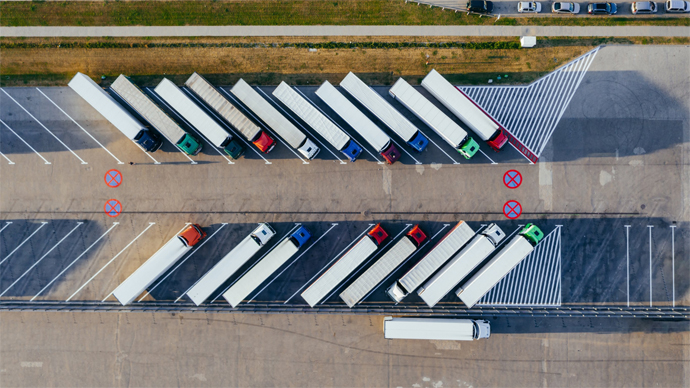What are Transit Trade Processes?
← Back
The process of purchasing a product of foreign origin and selling it to another country without entering the domestic customs area and customs duties is called transit trade. Products bought and sold in transit trade are not subject to taxes and duties, so they fall into a separate category from export and import.
The process of purchasing a product of foreign origin and selling it to another country without entering the domestic customs area and customs duties is called transit trade . Products bought and sold in transit trade are not subject to taxes and duties, so they fall into a separate category from export and import. The product purchased from abroad, exempt from export and import rules, is transferred directly to another place. Thus, transit trade is realized, customs-related taxes and duties do not occur. In addition, Customs Declaration is not issued.
Many concepts that are not included in the transit trade processes can be seen in exports and imports. Many situations such as VAT and tax are concepts that are not valid in transit trade. Since it is a commercial transaction that does not take place within the framework of export and import rules, taxation cannot be made within these rules. For VAT, the situation is slightly different. Since the product or service purchased or sold never visits the country in transit transportation, VAT cannot be demanded on behalf of that product or service.
Customs Declaration and VAT in Transit Trade
Many questions are asked about customs duty and VAT in the processes of transit trade. Transit trade, which is a form of trade separate from export and import rules, has a different answer to these questions. For transit trade processes:
- There is no need for customs declaration in transit trade.
- If the product enters the Turkish customs zones, a "Transit Trade Declaration" must be obtained.
- In order for the traded product to be included in the scope of VAT and to be evaluated within the scope of VAT, the product must be delivered within the borders of Turkey.
- Transit trade can be done regardless of payment methods.
- Exceptions are applied for taxes and duties within transit transportation transactions, they are exempted.
- It is forbidden to carry out the products whose international trade is prohibited by transit transportation . In addition, the sale of different products may be prohibited according to the laws of each country; In this case, that product should not be sold in that country.
Apart from these processes, it is also necessary to mention the invoice process. An invoice is issued to indicate the price by the place where the product is purchased. Taking this invoice price into consideration, an invoice is issued in English and sent to the person/institution to which the sale is made. This invoice, which is issued in English within the scope of Transit Trade, must also have a Turkish copy.
Importance of Transit Trade
Products bought and sold in export and import trade are subject to many processes, permits and approvals. This affects the duration of the purchase or sale of the product, and some of the parties may not be satisfied with this situation. Trade managers who manage the sale of these materials and goods in order not to lose customer satisfaction, by giving importance to transit transportation, benefit from many benefits such as reducing the tax burden and saving time. Recently, the importance of transit trade has been emphasized in order not to deteriorate pre-processes and permits in export and import transactions, grievances caused by registration procedures and customer satisfaction. The value given to customer satisfaction is kept at the highest level with transit trade. You can get all professional information about your process from rooster .com.tr/tr/information-acquiring"> Horoz Logistics experts.

 HONEST
HONEST Eğitim Portalı
Eğitim Portalı Müşteri Portalı
Müşteri Portalı Bize Ulaşın
Bize Ulaşın